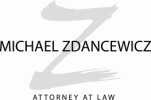 The Arizona Supreme Court issued an opinion clarifying Arizona Law addressing the waiver of statutory protections in loan documents. The case specifically addresses when parties can waive their rights to a fair market value determination under A.R.S. § 33-814 following the trustee’s sale of real property. A.R.S. § 33-814(A) entitles judgment debtors, including Guarantors, to have the fair market value of the property credited against the amount owed on the note following a Trustee’s Sale. Many times the loan documents include a waiver of the right to have the fair market value hearing. The Arizona Supreme Court held that parties may not prospectively waive this statutory protection.
The Arizona Supreme Court issued an opinion clarifying Arizona Law addressing the waiver of statutory protections in loan documents. The case specifically addresses when parties can waive their rights to a fair market value determination under A.R.S. § 33-814 following the trustee’s sale of real property. A.R.S. § 33-814(A) entitles judgment debtors, including Guarantors, to have the fair market value of the property credited against the amount owed on the note following a Trustee’s Sale. Many times the loan documents include a waiver of the right to have the fair market value hearing. The Arizona Supreme Court held that parties may not prospectively waive this statutory protection.
In this case the Borrower borrowed $15.6 million from a Lender in February 2007 to construct an office building. The promissory note was secured by a deed of trust and payment was guaranteed by four individuals. The loan documents all expressly waived the fair market value provision of A.R.S. § 33-814(A).
Borrower defaulted on the loan in June 2009, when a trustee’s sale was conducted when nearly $11.2 million remained outstanding. The Lender assigned its rights under the loan and deed of trust to a related third party. The property was acquired the trustee’s sale for the credit bid of $6.15 million. The Borrower and Guarantors were sued for a deficiency judgment of approximately $5 million plus interest. Borrower and the Guarantors filed counterclaims and a third-party claim for breaching of the implied covenant of good faith and fair dealing. The Lender and its related third party moved to dismiss the claims on the ground that Borrower and the Guarantors waived their right under A.R.S. § 33-814 to a fair market value determination. The Superior Court denied the motion, ruling that the parties could not waive this statutory right. Following an evidentiary hearing, the court found the fair market value of the property to be $12.5 million and no deficiency existed because the property’s fair market value exceeded the amount owed on the note.
The Supreme Court provided a thorough analysis of when and under what circumstances it will authorize courts to uphold waivers of statutory rights. The court looked to its past decisions discussing when parties may waive statutory rights. Generally, when rights are granted solely for the benefit of individuals, those waivers were upheld, but rights enacted for the benefit of the public may not be so easily waived. The key inquiry, as stated by the Supreme Court, is whether an identifiable public policy clearly outweighs the interest in enforcing prospective waivers of particular statutory provisions.
As applied to this case, the Supreme Court concluded the fair market value provisions, as well as the deed of trust framework, generally acknowledges “Arizona’s long-recognized public policy of protecting debtors”. (Emphasis added). In line with this public policy, the court confirmed Arizona’s deed of trust framework streamlines the foreclosure process but maintains protections for borrowers and the public. It does this by protecting against artificially increased deficiency judgments. The court repeatedly used the language of “protecting against artificially increased deficiency judgments”. The court concluded there is an identifiable public policy served by A.R.S. § 33-814(A) that clearly outweighs the interest in enforcing prospective waiver terms, and consequently it held that that such waivers are unenforceable.
Although not discussed in the decision, Judge Mangum at the trial court issued a 21-page minute entry ruling containing findings of fact and conclusions of law regarding the testimony of the appraisers and value of the real property. A reading of the minute entry offers valuable insight into the thought process of a Superior Court Judge when making a finding. The trial court found the property was worth as much as the debt and there was no deficiency. The Lender appealed on a technical argument where the law was not clearly in its favor. The message from the Supreme Court is clear; the Arizona statutes are in place to protect the public against artificially increased deficiency judgments.
The Supreme Court vacated the Court of Appeals analysis on waiver, and substituted its own analysis. The Supreme Court affirmed the Superior Court’s judgment. The trial court awarded Borrower and Guarantors a combined $335,104.42 in attorney’s fees and costs, additionally, the Supreme Court, on appeal, awarded fees to Borrower and the Guarantors.
The attorneys at Windtberg & Zdancewicz, PLC provide clients with experienced legal representation in all litigation and bankruptcy matters. We are experienced in creditor’s rights prosecuting and defending garnishments, charging orders, attachment, property execution, trustee’s sales, foreclosures, judgments, judgment collection, domestication of foreign judgments, and creditor’s issues in bankruptcy cases. If you need assistance with your collection matters, please contact us at (480) 584-5660.
